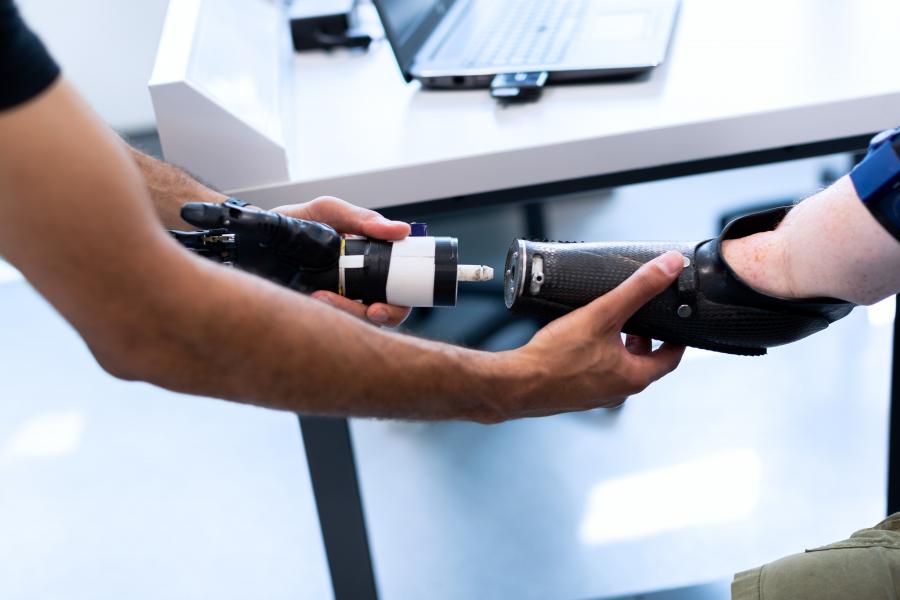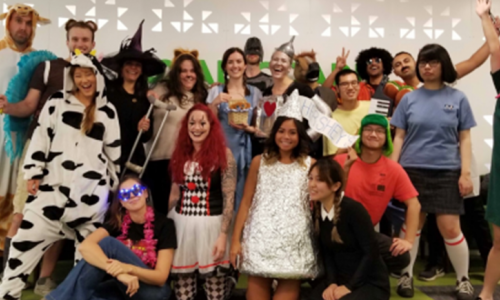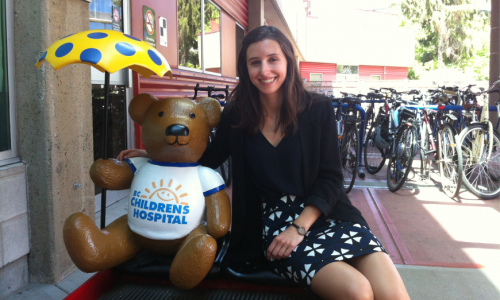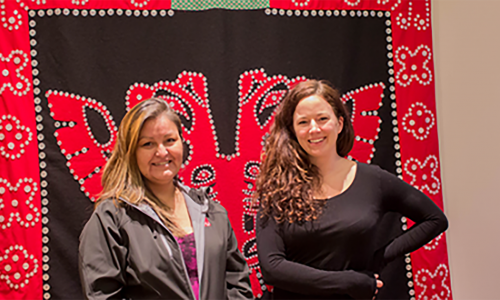
Throughout my time at SFU, I have come across some Mechatronics Systems Engineering students who had difficulty finding co-op positions. Many of these students I spoke to did not seem to have anything beyond their grades to show employers and because of this, they had more difficulty in demonstrating their interests in the fields they were applying for. For me, my own personal projects and hobbies outside of school gave me the tools to build something in practice, which not only made me much more competitive in the job search but also allowed me to secure a co-op where the work was aimed towards improving lives of people.
The Gleeful Freshman
In my first year of university, I was mostly getting accustomed to the academic requirements and challenges placed in front of me. However, when it eventually came time for me to seek a co-op term, I began rummaging through the job descriptions posted by employers. In the descriptions, they made it clear that I would be competing against third and fourth-year students and so I knew I had to find a way to make myself more competitive. Through this time until I landed a co-op, I invested quite some time in personal projects after one of my Profs said something like, "If you are interested in something, do not wait for someone to teach you. Make the choice to pick it up and figure it out as you go along". I started off working with Texas Instruments Launchpads; which at the time were new to the market and specifically aimed at getting university-level students familiar with microcontrollers and their applications. With no previous experience in the field, but intrigued by their use in robotics, I simply played around with tutorials and small example projects. With more confidence, I went on to build a small robot capable of rudimentary navigation and stimulus-response. In retrospect, I was repeating the project done in the first year where mechatronics students build such robots from a Lego mechanics kit, the difference being that this time I was building the hardware and the software from scratch. The project introduced me to the field of robotics, sensors, embedded software, and small-scale algorithms. All of my hard work paid off when I was able to secure a one-year co-op term as a radio software developer, a direct result of the knowledge I gained about microcontrollers.
The Returning Student
When I returned to school after my first co-op, I worked to maintain my grades, but I also invested attention in my personal projects. Personal projects gave me the most freedom in choosing when, where, and what I work on, and through these projects, I became more interested in control theories. My knowledge of microcontrollers and software helped me immensely through this, but after three semesters of university, I was becoming somewhat weary of academia. I was really interested in building intelligent controllers but felt that in Mechatronics, students mostly deal with mathematically defined control strategies, which leave little room for the exploration of machines capable of making their own decisions. Due to the ill-timing of my class schedule in having to wait for my capstone courses, I took the opportunity to start looking for co-op jobs again. During this time, a friend recommended looking into a research laboratory based at the SFU Burnaby campus. The lab’s research dealt highly with robotic devices and involved the designing of everything from hardware to electronics and software. I applied for the job and was invited to an interview. During the interview, I was told that the lab prefers to hire individuals who have experience in robotics at some level, to which I expressed my interest in the field of robotics and explained my personal project working on mathematics for controlling a robot adaptively. My 15-minute interview ended up being 40-45 minutes and was quite enjoyable, as my interviewer seemed pleased that I was so interested and had taken the effort to learn things meant for senior students. I was offered the job and gladly accepted.
The Senior Co-op
The research lab was quite diverse not only in terms of the projects but also the students. Slowly, as I was getting more familiar with the research of the doctoral students working in the lab, I began to realize that a big aspect of their work dealt with signal processing and controlling robotic devices. This became a new area of interest for me and, upon recommendation from one of my co-workers, I was on my way to learning new computational skills through online courses during my free time. The first four months not only helped me fill the experience gap in my resume but also gave a completely new opening for my personal projects and my area of interest in research. The degree of freedom that my work gave me was very rewarding as I was not merely running tests or assembling hardware, but bringing my own vision to life with feedback and support from experienced students.
After the initial four months, I spent the next four under the supervision of a different set of senior students. Although engineering research organizations funded the project being handled by the students, it was particularly different in terms of the target population and environment. Part of the requirements for the project was to deliver a “research product” for monitoring the well-being of stroke survivors in their homes. This time, I was able to bring back all my knowledge on microcontrollers, computing applications, and machine learning algorithms to design a different set of products with an emphasis on electronics. I was working with electronic prototyping machines, various electronic chipsets, and evaluation boards to outline the electronic backbone of the design. At the end of my eight months, I felt confident that I had covered all areas necessary (software, hardware, and electronics) to be called a mechatronics engineer.
This co-op taught me much more than just technical proficiency. Over the course of eight months, I was involved in multiple projects, some dealing with stroke survivors, others with neurological impairment, and even upper limb amputees. Through interacting with these individuals, I was able to get to know their challenges, to see how the work being done in the lab impacts them and was inspired by their commitment towards overcoming odds and to be a part of research with the potential to significantly impact many more lives.
The Future
Working in this research lab, I came across people who have taken different paths through academia. Some have gone directly from undergraduate degrees through masters to doctorates; others have become part of the industry and returned to academics on a part-time basis. Through these people, I have not only been able to learn about dedication to advancement, but also the potential path that my own career can take. My co-op opened me to an experience where the research was not just for the sake of a thesis but was a via point to products that hold the promise of positively impacting the lives of people. In the future, whether I join the ranks of industrial engineers, or return to studies, I am reassured that there are opportunities out there to be part of movements that effectively bridge research and industry together for the bettering of the lives of others.













